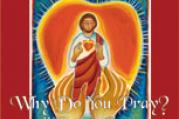Click here if you don’t see subscription options

Misleading Title
With regard to Cardinal Walter Kasper’s Friendly Reply’ to Cardinal Joseph Ratzinger (4/23), the title on your cover is misleading, since Walter Kasper wrote and published the article in German, not as a cardinal but as a bishop, in 2000. More importantly, the English translator has taken considerable liberties in sharpening the language. For instance, with reference to the lack of understanding of some Roman directives on the part of local clergy and laity, the English text states: The adamant refusal of Communion to all divorced and remarried persons and the highly restrictive rules for eucharistic hospitality are good examples. But the words adamant, all and highly restrictive (italicized in my text) have no equivalents in the German, which, accurately translated, would read: This affects ethical questions such as questions of sacramental and ecumenical practice, for example, the admission of divorced and remarried persons to Communion or the practice of eucharistic hospitality. (Dies betrifft ethische Fragen wie Fragen der sakramentalen und der okumenischen Praxis, etwa die Zulassung wiederveheirateter Geschiedener zur Kommunion oder die Praxis eurcharistischer Gastfreundschaft.) The tone of the article has been changed to make it appear inflammatory.
Whether the various local churches should be free to decide these issues for themselves, as Kasper maintains, is quite another question. I would regard them as matters in which local churches ought not to go their own way, since the very nature of the Eucharist as a sign of communion is at stake.
(Cardinal) Avery Dulles, S.J.




“The Advocate, the Holy Spirit, whom the Father will send in my name, will teach you everything (Jn. 14:26)”





